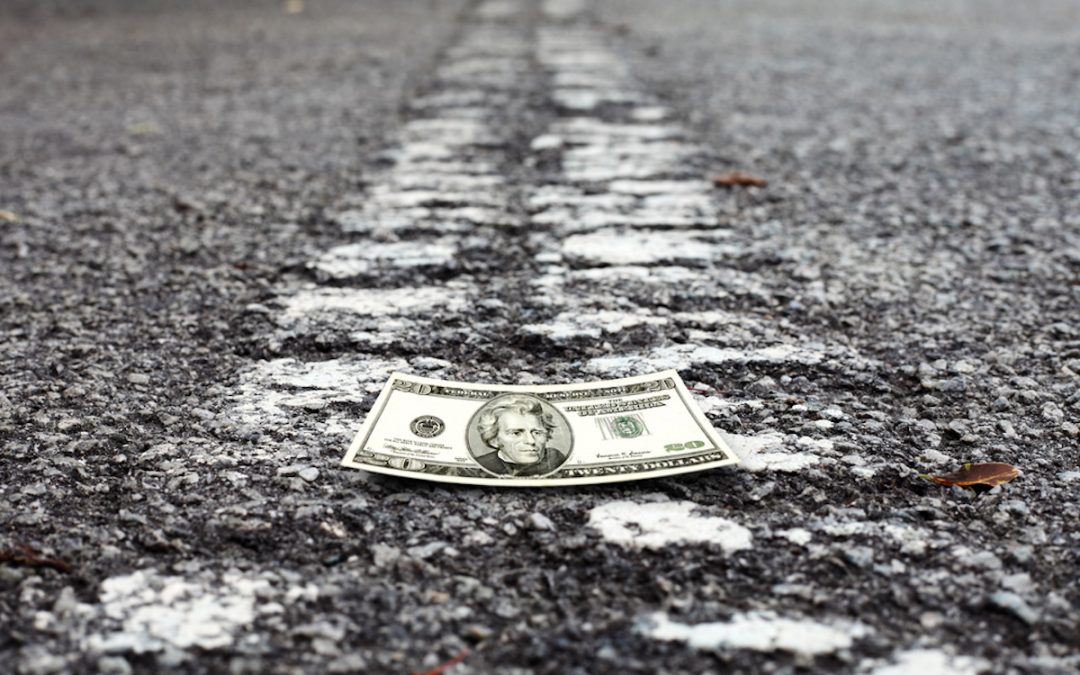As Michigan Gov. Gretchen Whitmer prepares to deliver her second annual State of the State Address on Wednesday, a new poll underscores the first-term Democrat’s challenge to “fix the damn roads.”
Michigan voters say crumbling infrastructure is the most important issue facing the state. But they don’t want to pay more for repairs:
More than 53 percent of voters believe the state already has enough money to fix the roads, according to the poll of 600 likely general election voters commissioned by the Detroit Regional Chamber. The Jan. 14-18 survey found 34 percent of voters polled think new revenue is necessary.
Whitmer and state transportation officials argue the state needs to spend upward of $2 billion on roads and bridges each year to keep them from going from bad to worse.
But they’re “losing the PR battle with voters in failing to succinctly explain why there’s not enough money,” said veteran pollster Richard Czuba of the Glengariff Group Inc., which conducted the live operator survey.
More than 29.5 percent of respondents identified roads and bridges as the most important issue facing the state, making it the most common answer to an open-ended survey question.
By comparison, 18 percent of voters identified jobs and the economy as the most important issue in Michigan, followed by 7.2 percent who said education and 6.3 percent who said water infrastructure.
A plurality of voters (46 percent) think Michigan roads are getting worse, while 40 percent think they’ve stayed about the same. Despite a 2015 law that pumped more money into roads, just 12 percent of voters think they are improving. The poll results have a margin of error of +/- 4 percentage points.
“There’s no controversy about the roads being awful,” Czuba said. “Where there is controversy is, do we need more money or not? And the voters still have not been convinced that we need more money, particularly independents and Republicans.”
The findings follow a study last year from The Center for Michigan, Bridge Magazine’s parent nonprofit, that found two-thirds of residents believed roads are getting worse, but only a slim majority, 51 percent, would pay $100 or more to fix them.
Whitmer is preparing to unveil a new road funding plan after failing to secure legislative support last year for an proposal to raise fuel taxes by 45-cents per gallon over two years. That would have nearly tripled Michigan’s gas tax to 71.3 cents a gallon and made it the highest in the nation.
The Detroit Regional Chamber endorsed that plan, but president and CEO Sandy Baruah said the new polling shows voters do not trust the government enough to believe the need is real.
“The campaigns that this and previous administrations have run clearly haven’t been targeted correctly,” he said.
Trial balloons floated in Lansing suggest Whitmer’s new roads plan could include bonding — borrowing to fund big repair projects — or experiments with tolling to raise new revenues.
Baruah said one “partial” solution to the road funding disconnect could be allowing cities or counties to levy their own taxes to raise revenue for infrastructure needs. State Rep. Jack O’Malley, a Republican from Lake Ann, floated a similar idea last year with legislation that would allow counties to implement a local gas tax, if approved by local voters.
The chamber poll results suggest if more money was raised for roads, voters would have more trust in their city or county government to spend it appropriately.
Just 23 percent of voters said they’d have the most faith in the state.
When it comes to describing the projected cost of road repairs, “big numbers” like $2 billion are just “going over people’s heads,” Baruah said. “With the level of trust in government so low, we’re going to have to take a significantly different approach than we have.”
There is good news for Whitmer as she heads into her State of the State address: More than 46 percent of voters think Michigan is on the right track, compared to just 33 percent who think it’s on the wrong track, according to the poll results.
Most voters also appear to support proposals the governor has pushed, including a job-retraining program with debt-free community college (74 percent), a hands-free driving law restricting cellphone use (88 percent) and new anti-discrimination projections for gay and transgender residents (77 percent).
This article appeared in Bridge Michigan. Read more here.

